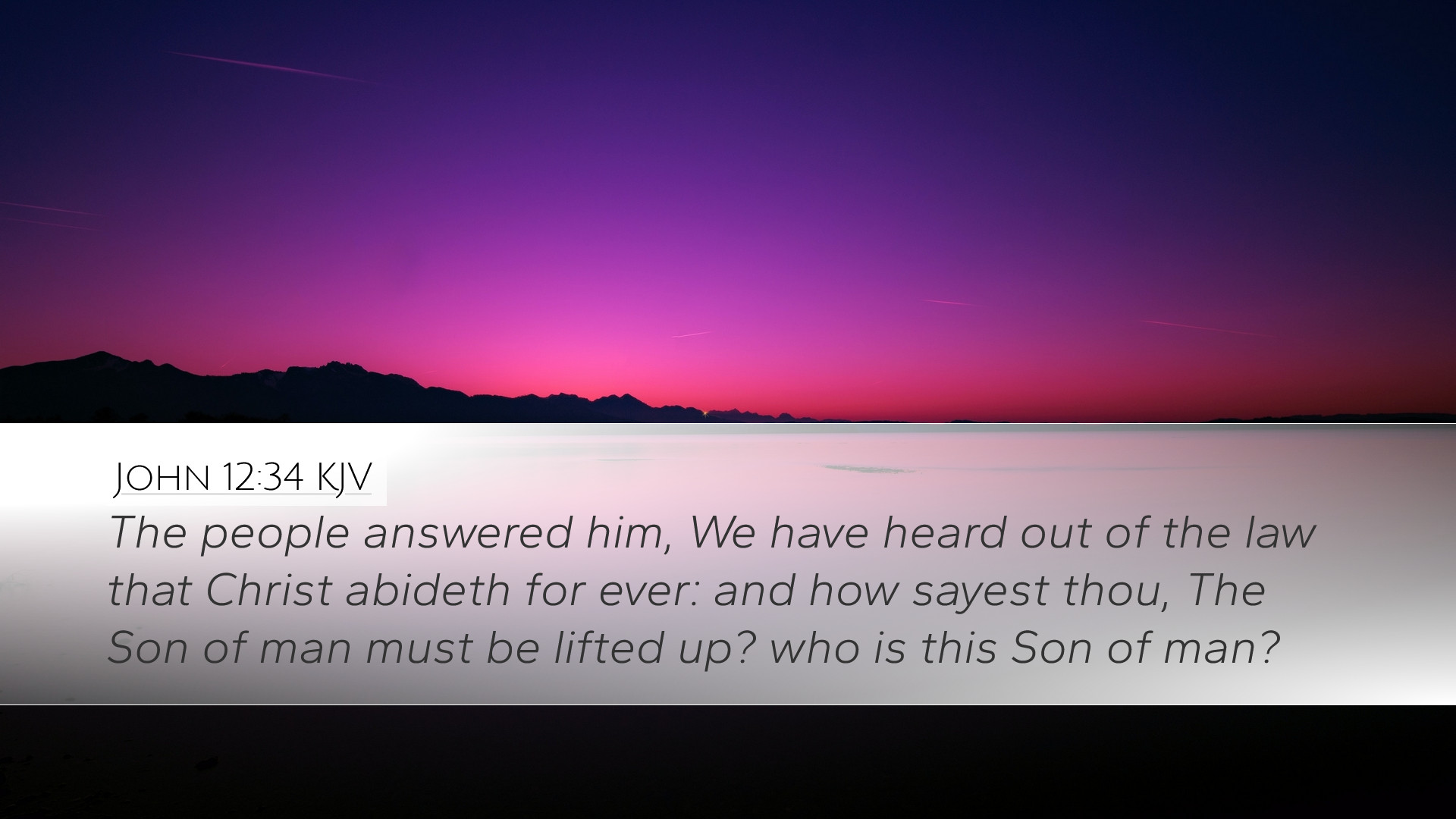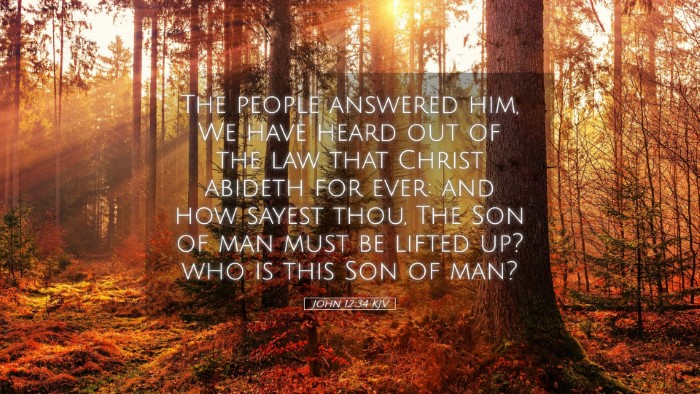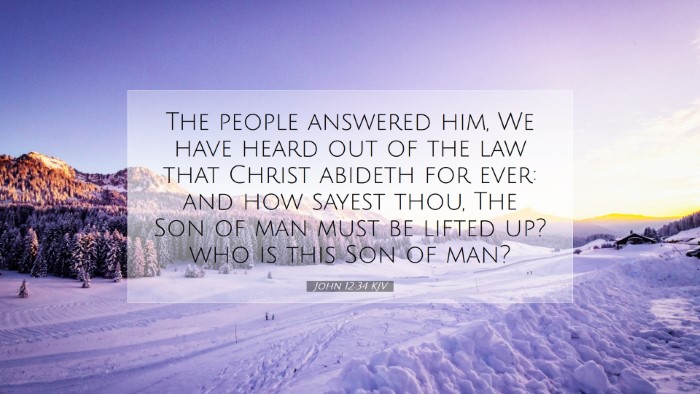Commentary on John 12:34
Verse: John 12:34 (KJV) - "The people answered him, We have heard out of the law that Christ abideth forever: and how sayest thou, The Son of man must be lifted up? who is this Son of man?"
This verse captures a poignant moment in the Gospel of John where the misunderstanding of Jesus' mission becomes glaringly evident among the Jewish crowd. Their response reflects a blend of expectation regarding the Messiah and confusion regarding the identity and destiny of Jesus. This commentary will explore the implications of this verse through the insights of notable public domain theologians.
Understanding the Context
The context of this verse is significant. Leading up to this point, Jesus has been teaching about His impending death. The people’s response highlights their adherence to the notion that the Messiah would reign eternally. Matthew Henry notes, “They had heard the Old Testament prophecies concerning the permanence of the Messiah's kingdom, and thus they were bewildered by Jesus’ statement regarding His crucifixion.”
The Perception of the Messiah
The crowd’s belief that 'Christ abideth forever' reflects a common Jewish expectation of a triumphant Messiah. Albert Barnes comments, “Their understanding of the Messiah did not encompass suffering or death, as predicted by the prophets.” This belief is rooted in texts such as Isaiah 9:6-7, which speak of an everlasting kingdom, leading to their puzzled query about 'the Son of man'.
Responses and Reactions
The rhetorical question posed by the people, "who is this Son of man?", signifies their struggle to reconcile Jesus’ identity with Old Testament prophecy. Adam Clarke remarks, “This demonstrates a crucial point—their unwillingness to accept that the Messiah would experience suffering was fundamental to their misunderstanding of the Scriptures.”
The Significance of 'Lifted Up'
Jesus speaks of being 'lifted up', a term that has multifaceted implications, including His crucifixion and subsequent exaltation. Matthew Henry observes, “The reference to being lifted up indicates both humiliation and glorification.” This duality is essential for scholars and preachers as it encapsulates the paradox of the Christian faith—death leading to life.
Interpretations of 'Son of Man'
The designation 'Son of Man' is rich with theological significance. Jesus uses this title to affirm His humanity and messianic authority. Albert Barnes notes, “In the Hebrew traditions, 'the son of man' often refers to a figure of authority amidst suffering.” This title bolsters the paradoxical nature of Christ’s ministry and role as both sovereign and suffering servant.
Theological Reflections
This verse invites profound theological reflection. It illustrates humanity’s struggle to grasp divine truths, often clouded by expectations and preconceptions. Adam Clarke writes, “It is crucial for theological discourse to explore how earthly perceptions can obstruct spiritual understanding.” As theologians, it is vital to convey that Christ’s mission entailed suffering, which ultimately fulfills God’s redemptive plan.
Application for Today
For pastors and students of theology, John 12:34 is a reminder of the importance of teaching the full scope of the Gospel—both the resurrection and the cross. Matthew Henry states, “It serves as a lesson to us that as we proclaim Christ, we must not shy away from the aspects that challenge conventional belief.”
- Understanding Expectations: Pastors should encourage their congregations to align their expectations with Scripture rather than cultural assumptions.
- Emphasizing Suffering: Discipleship involves acceptance of trials, mirroring Christ's suffering for our sake.
- Celebrating Exaltation: The narrative does not end with the cross; it ultimately points to the resurrection and Christ’s eternal reign.
Conclusion
John 12:34 stands as a pivotal verse elucidating the confusion and misunderstanding surrounding Jesus’ identity and mission. The collective query of the crowd invites rich commentary and deep theological inquiry. As reflected in the writings of Henry, Barnes, and Clarke, this passage encourages a comprehensive view of messianic prophecy and its fulfillment in Christ. Both the cross and the crown are fundamental to the Christian faith, inviting believers to embrace the fullness of Christ's life and mission.


